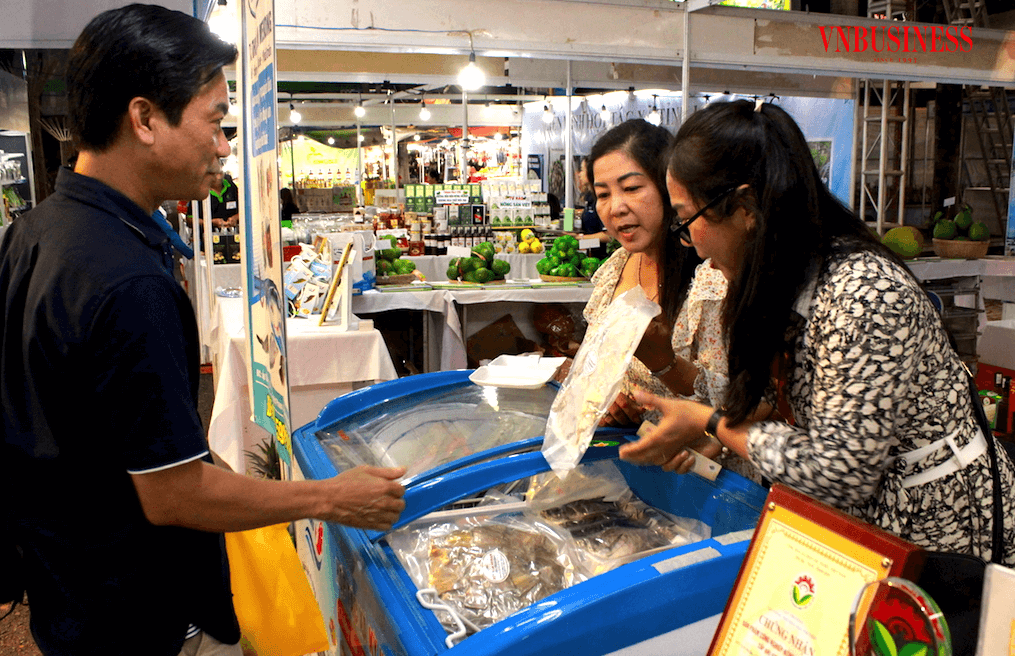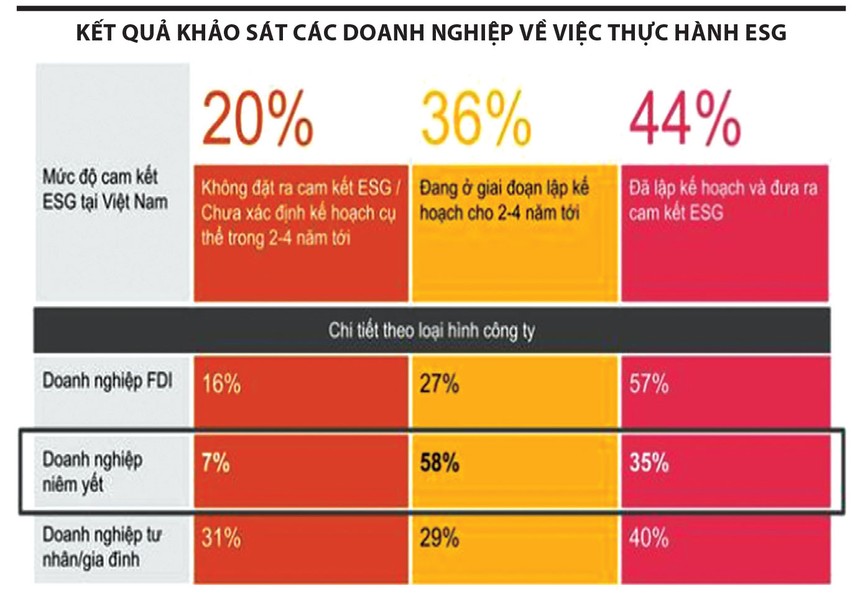New pathways for domestic players in the consumer goods industry in the late 2024 and upcoming 2025 amid fierce competition is to improve price and quality competitiveness to retain and attract buyers. In particular, they should quickly catch up with market conditions, with shifts in consumer trends and innovative strategies to meet new needs.
A recent analysis report released in late November 2024 by the Analysis Department of SSI Securities Company stated that Masan Group Corporation (MSN) – a leading domestic enterprise in the consumer goods industry, is likely to complete this year’s profit plan positively.
“Light entrance” for growth amid high competitive pressure
Accordingly, Masan is estimated to have a profit attributable to the parent company’s shareholders of VND 1.9 trillion for 2024 , driven by better-than-expected business results from its two subsidiaries in the consumer and retail sectors: Masan Consumer Holdings (MCH) and WinCommerce (WCM).

Small and medium-sized enterprises in the consumer goods sector must optimize sales channels to meet the new demands of consumers amid this fierce competition.
Not only that, the parent company’s shareholder profit is forecast to grow by 48% in 2025, thanks to the continued improvement in profits at its subsidiaries in the consumer sector such as Wincommerce or Masan MEATLife (MML).
As assessed by SSI, MSN can be a representative of Vietnam’s long-term consumption and retail growth story. The compound annual growth rate for the parent company is projected to be 33% from 2024-2026.
It should be noted that Masan is building a new fast-moving consumer goods (FMCG) model with a strategy to establish 6 billion-dollar big brands, ensuring consumers feel secure when spending on products.
In addition, as Mr. Truong Cong Thang, CEO of MCH, once shared, the FMCG market size that the company is serving is currently valued at 8 billion USD, while the total market size in Vietnam is up to 32 billion USD.
Similarly, according to an updated report from SSI in late November 2024, Digiworld Corporation (DGW) expects strong growth (25-30% year-on-year for 2024-2025) in its home appliances and FMCG segments as the company continues to add new brands and products to its portfolio.
Analysts predict that DGW’s FMCG segment in the 2024-2028 period will have a compound annual growth rate (CAGR) of 25.4%. In 2024, this segment is expected to officially surpass the revenue milestone of 1 trillion VND. This is primarily driven by factors such as double-digit growth in the FMCG sector; DGW’s market share still has a lot of room to expand and the company’s continuous addition of consumer goods to its portfolio.
In addition to the “light entrance” for growth of the two domestic enterprises mentioned above in the consumer goods industry, at a seminar organized by the Association of High-Quality Vietnamese Goods Enterprises in Ho Chi Minh City on December 2nd to discuss the 2025 Tet shopping trend – how to meet the new needs of consumers, Ms. Nguyen Phuong Nga, Senior Business Development Director of Kantar Vietnam Market Research Company, noted that there is fierce competition in the consumer goods industry in Vietnam from both long-standing and emerging brands, domestic and foreign international.
According to Ms. Nga, this intense competition arises from all directions. There are increasingly more brands and products available in the market that attract consumers. The growth in the number of products on the market comes from large enterprises, small enterprises, or newly established firms, or foreign enterprises entering the Vietnamese market through both formal and informal channels.
“This factor gives consumers more choices, and when they have more choices, they are certainly more likely to switch brands based on factors like better packaging or more competitive pricing …”, Ms. Nga shared.
Keeping up with new demands
This situation places considerable competitive pressure on domestic companies in the consumer goods sector, especially over the past 2-3 years, compounded by recent changes in shopping behavior.
As noted by the Senior Business Development Director of Kantar Vietnam, the continuous launch of new products offers consumers more choices and a richer product portfolio. However, this also leads to a decline in brand loyalty. Notably, top brands are gradually losing market share to emerging smaller brands.
“In the past, it was very difficult for newly established small companies to penetrate distribution channels, but that has changed, especially in rural areas. The market is now highly fragmented, providing more opportunities for smaller businesses to establish their presence”, Ms. Nga added.
Moreover, according to Ms. Nga, Chinese brands have significantly entered this industry with a deep penetration strategy, have stores, representatives, large website stores… And Thai brands are also present. Additionally, businesses also compete with private labels from supermarkets, which saw a 7% increase in 2023 and a projected 17% growth in 2024.
In addition, considering the current shopping trends in the consumer goods industry in Vietnam, it can be seen that the trend of choosing a place to shop increasingly requires a variety of goods, transparency in origin, reasonable prices and added values from incentive programs. Therefore, the new pathway that consumer goods businesses need to pursue is to quickly adapt and innovate strategies to meet these expectations, while enhancing competitiveness in the market.
Moreover, the fierce competition among businesses in the consumer goods industry will accelerate the restructuring process for domestic players. Competitive pressure, the race on costs, technology and customer service compel them to constantly seek new pathways and solutions to reduce costs, optimize operations, improve price and quality competitiveness to attract and retain customers.
Additionally, experts believe that this intense competitive pressure is a decisive factor for domestic companies in the consumer goods sector as they aim to expand their market share. However, this also poses great challenges for small and medium-sized enterprises as they face competition from large corporations with strong financial resources.
In the long run, this competition will contribute to making Vietnam’s consumer goods market more transparent, promoting the development of domestic enterprises with high competitiveness, more effective and flexible business strategies to increase market share and consolidate their position.
In particular, domestic enterprises need to keep up with market conditions and shifts in consumer trends. They should implement priority strategies aimed at repositioning their operations and laying the groundwork for sustainable success.
Among these strategies, enhancing omni-channel sales is something that domestic enterprises in the consumer goods industry should further strengthen. Because in the midst of this race, when consumers desire flexibility in their shopping experiences, it requires enterprises to optimize sales channels to both meet new consumer needs and maintain good growth.





